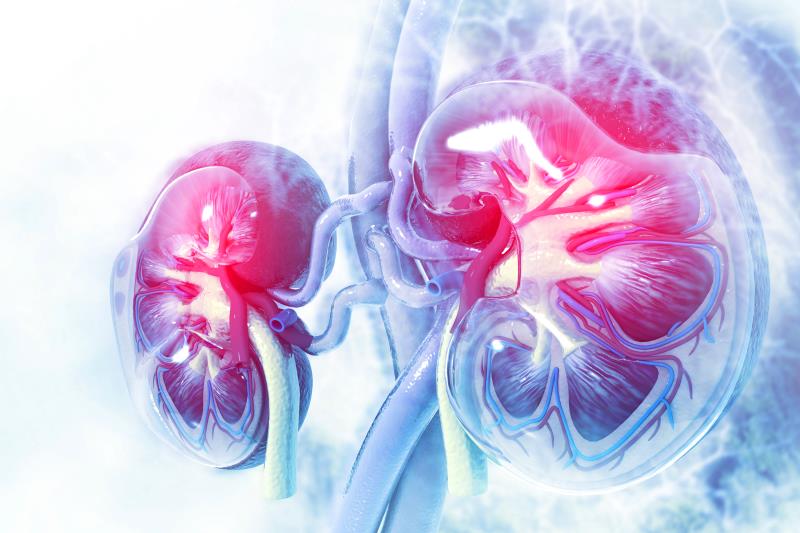
Improvements in overall survival (OS) and clinical responses were maintained with the nivolumab (NIVO) + ipilimumab (IPI) combination in patients with advanced renal cell carcinoma (aRCC) at an extended 42-month follow-up, according to updated results of the CheckMate 214* study presented at ASCO GU 2020.
“Results from this 42-month follow-up from the CheckMate 214 study reinforce the previously observed findings and add to the growing body of evidence suggesting that nivolumab plus ipilimumab has the potential to significantly improve long-term survival for patients with aRCC, a population with high unmet needs,” said Dr Nizar Tannir from the Department of Genitourinary Medical Oncology, Division of Cancer Medicine at the University of Texas MD Anderson Cancer Center in Houston, Texas, US.
The previous primary analysis supported the combination of NIVO + IPI as first-line treatment of patients with aRCC who had IMDC** intermediate/poor risk classification at a minimum follow-up of 17.5 months, he noted.
In this updated analysis, intermediate/poor-risk (n=847), intention-to-treat ([ITT], n=1,096), and favourable-risk (n=249) populations were assessed at an extended follow-up of 42 months. Participants were randomized in 1:1 ratio to receive either NIVO 3 mg/kg + IPI 1 mg/kg Q3W for four doses, followed by another NIVO 3 mg/kg Q2W or sunitinib 50 mg alone once/day for a 6-week cycle (4 weeks on and 2 weeks off). Treatment was given until disease progression or intolerable toxicity. [ASCO GU, abstract 609]
At 42 months, the OS rate was consistently higher in the NIVO + IPI arm vs the sunitinib alone arm in the intermediate/poor-risk (52 percent vs 39 percent; hazard ratio [HR], 0.66; p<0.0001) and ITT populations (56 percent vs 47 percent; HR, 0.72; p=0.0002).
As per IRRC***, a significantly higher objective response rate (ORR) was observed among intermediate/poor-risk and ITT patients who received NIVO + IPI compared with sunitinib alone at 42 months (42 percent vs 26 percent; p<0.0001 and 39 percent vs 33 percent; p=0.02, respectively), with a complete response (CR) rate of 10 percent vs 1 percent and 11 percent vs 2 percent, respectively.
The median duration of response was not reached among intermediate/poor-risk and ITT patients who had NIVO + IPI, and was 19.7 and 24.8 months, respectively, in those who received sunitinib alone.
Although the progression-free survival (PFS) curve plateaued after 30 months of follow-up in the NIVO + IPI arm, the PFS remained significantly higher among intermediate/poor-risk patients on NIVO + IPI than those on sunitinib alone (35 percent vs 19 percent; HR, 0.76; p<0.01), with longer median PFS at 12.0 vs 8.3 months, respectively.
Tannir highlighted that the PFS difference between the NIVO + IPI and sunitinib alone arms increased over time with 8 percent, 15 percent, and 16 percent at 18, 30, and 42 months, respectively.
In an exploratory efficacy analysis of patients with favourable risk, the difference in OS was still inconclusive between the NIVO + IP and sunitinib alone arms at 42 months (70 percent vs 73 percent), but the median OS was not reached in both arms.
Even though the ORR was higher among favourable-risk patients in the sunitinib arm than in the NIVO + IPI arm (54 percent vs 29 percent; p<0.0001), more patients still achieved a higher CR rate in the NIVO + IPI arm vs the sunitinib arm (13 percent vs 6 percent).
Overall, the incidence of grade 3–4 treatment-related adverse events (AEs) were consistently lower with NIVO + IPI arm compared with the sunitinib arm in each 6-month interval of follow-up visits (47 percent vs 64 percent).
More patients in the NIVO + IPI group discontinued treatment due to AEs than those in the sunitinib arm (66 percent vs 56 percent), but the discontinuation did not impact the OS benefit of NIVO + IPI in this present study, said Tannir.
“[In conclusion,] superior OS and ORR with NIVO + IPI was maintained in ITT and intermediate/poor-risk patients. [All] responses were durable, and PFS probabilities stabilized with the NIVO + IPI after extended follow-up,” Tannir noted.
“These results represent the longest follow-up in a phase III trial of a checkpoint inhibitor combination [of NIVO + IPI] for first-line treatment of patients with aRCC, … and no new safety signals emerged with [the] NIVO + IPI [combo],” he added.
*CheckMate 214: Nivolumab combined with ipilimumab versus sunitinib in previously untreated advanced or metastatic renal cell carcinoma
**IMDC: International Metastatic Renal Cell Carcinoma Database Consortium
***IRRC: Independent Radiology Review Committee